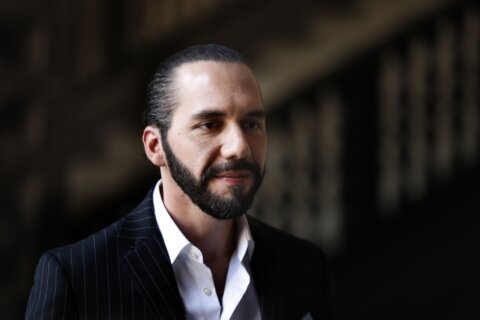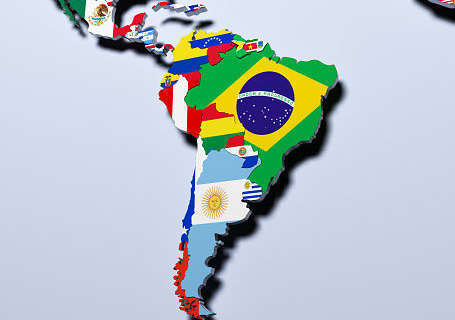LIMA, Peru (AP) — When Pedro Castillo won Peru’s presidency last year, it was celebrated as a victory by the country’s poor — the peasants and Indigenous people who live deep in the Andes and whose struggles had long been ignored.
His supporters hoped Castillo, a populist outsider of humble roots, would redress their plight — or at least end their invisibility.
But during 17 months in office before being ousted and detained Wednesday, supporters instead saw Castillo face the racism and discrimination they often experience. He was mocked for wearing a traditional hat and poncho, ridiculed for his accent and criticized for incorporating Indigenous ceremonies into official events.
Protests against Castillo’s government featured a donkey — a symbol of ignorance in Latin America — with a hat similar to his. The attacks were endless, so much so that observers from the Organization of American States documented it during a recent mission to the deeply unequal and divided country.
Castillo, however, squandered the popularity he enjoyed among the poor, along with any opportunity he had to deliver on his promises to improve their lives, when he stunned the nation by ordering Congress dissolved Wednesday, followed by his ouster and arrest on charges of rebellion. His act of political suicide, which recalled some of the darkest days of the nation’s anti-democratic past, came hours before Congress was set to start a third impeachment attempt against him.
Now with Castillo in custody and the country being led by his former vice president, Dina Boluarte, it remains to be seen if she, too, will be subjected to the same discrimination.
Boluarte, a lawyer who worked in the state agency that hands out identity documents before becoming vice president, is not part of Peru’s political elite either. She was raised in an impoverished town in the Andes, speaks one of the country’s Indigenous languages, Quechua, and, a leftist like Castillo, promised to “fight for the nobodies.”
The Organization of American States, in a report published last week, noted that in Peru “there are sectors that promote racism and discrimination and do not accept that a person from outside traditional political circles occupy the presidential chair.”
“This has resulted in insults toward the image of the president,” it said.
After being sworn in as president Wednesday, Boluarte called for a truce with the lawmakers who ousted Castillo on charges of “permanent moral incapacity.”
Peru has had six presidents in the last six years. In 2020, it cycled through three in a week.
Castillo, a rural schoolteacher, had never held office before narrowly winning a runoff election in June 2021 after campaigning on promises to nationalize Peru’s key mining industry and rewrite the constitution, winning wide support in the impoverished countryside.
Peru is the second-largest copper exporter in the world and mining accounts for almost 10% of its gross domestic product and 60% of its exports. But its economy was crushed by the coronavirus pandemic, increasing poverty and eliminating the gains of a decade.
Castillo defeated by just 44,000 votes one of the most recognizable names among Peru’s political class: Keiko Fujimori, the daughter of former strongman Alberto Fujimori, who is serving a 25-year prison sentence for the murder of Peruvians executed during his government by a clandestine military squad.
Keiko Fujimori’s supporters have often called Castillo “terruco,” or terrorist, a term often used by the right to attack the left, poor and rural residents.
Once in office, Castillo went through more than 70 Cabinet choices, a number of whom have been accused of wrongdoing; faced two impeachment votes, and confronted multiple criminal investigations into accusations ranging from influence peddling to plagiarism.
Omar Coronel, a sociology professor at Peru’s Pontific Catholic University, said while the corruption accusations and criticism of Castillo’s lack of experience have merit, they were tinged with racism, “a constant in any Peruvian equation.”
“One can criticize his political inexperience, his clumsiness, his crimes,” Coronel said. But the way in which this was framed, that it was because Castillo was from a rural community with different customs, “is a deeply racist discourse and tremendously hypocritical,” because right-wing presidents have also faced corruption allegations.
“Social media networks have been flooded with visceral racism during all these 17 months,” Coronel said.
Some of Castillo’s remaining supporters have protested and blocked roads across the country since his arrest. They have also gathered outside the detention facility where he and Alberto Fujimori are held.
“They have called him all sorts of discriminatory words,” Castillo supporter Fernando Picatoste said Friday outside the prison. “It’s a racial issue. In Congress, lawmakers, who supposedly have national representation, … have the audacity to insult the president.”
___
Associated Press writer Franklin Briceño contributed to this report.
Copyright © 2024 The Associated Press. All rights reserved. This material may not be published, broadcast, written or redistributed.







